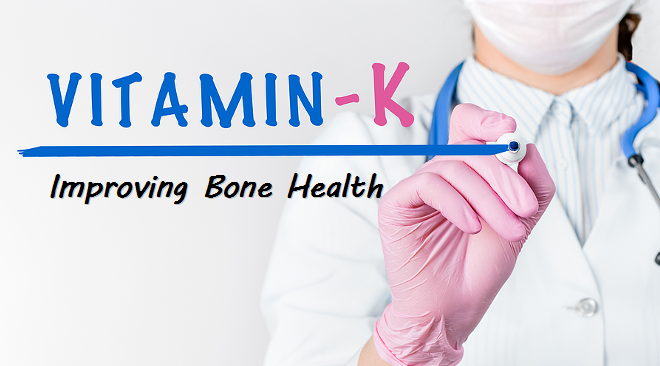Improving bone health is vitally important for adults over the age of 50. Commonly called osteoporosis, this bone loss can be a contributing factor in age related disability.
For example, in the United States approximately 25% of men and 50% of women age 50 and older will experience a fracture due to osteoporosis. And if this wasn’t bad enough, 20% of patients over 50 who suffer a hip fracture will die.
Most people believe that taking a calcium supplement will help in improving bone health. And while it may slow down bone loss, it does not prevent it.
Which brings us to the main focus of this article.
Research out of Japan shows that high doses of vitamin K2 helps to prevent bone loss and protect against fractures.
These clinical trials used 45 mg of vitamin K2 (menagquinone-4) in helping to:
-
Slow Bone Loss
-
Reduce Fracture Risk
-
and Build New Bone
In a two-year study, high doses of vitamin K2 helped older osteoporosis patients reduce vertebral fractures by half.
It’s important to know that your body constantly breaks down old bone and replaces it with new bone.
After we are born, and for the first couple of decades of our life, bone density increases. Then for the next couple of decades it plateaus. Meaning that the amount of old bone being replace with new bone is about the same.
However, around the age of 40 bone density begins to decrease. And for women experiencing menopause, the bone loss accelerates.
Bone density is influenced by two types of bone cells:
-
Osteoclasts break down old bone.
-
Osteoblasts build new bone.
It is the balance between the activity of these two bone cells that determine whether you’re improving bone health or not.
Vitamin K2 helps to restore the proper balance between these two types of bone cells. In preclinical studies, vitamin K2 has been shown to:
-
Increase osteoblast activity to build new bone.
-
Reduce osteoclast activity to reduce the break down of old bone.
There are other key nutrients that help support vitamin K2 and its ability to maintain good bone density and health. They are:
Calcium – This is the key mineral that forms the hard matrix of the bone. And while oral calcium intake helps to slow down bone loss, it does not stop bone loss.
Magnesium – This mineral is also a key component in the bone matrix and is needed to help maintain bone density.
Zinc, Manganese, Silicon, and Boron – While not key minerals, they are important to optimal bone health and function. Low intake of these minerals is associated with bone loss. And improved intake of these minerals results in improved bone health.
Vitamin D – This nutrient is critical to good bone health as it helps your body to properly absorb calcium. Plus it stimulates the production of a protein called osteocalcin, which the osteoblasts need to build new bone. Vitamin D also improves the absorption of zinc and manganese, which are important to bone density and health.
Vitamin K2 has also been shown to prevent the calcification of soft tissues like your heart and blood vessels. It does this by activating matrix Gla protein, which inhibits vascular calcification.
If you decide to use high doses of vitamin K2, then a note of precaution. Vitamin K can interfere with some medications. Check with your pharmacist to make sure that what you are planning to take will not interfere any of your medications.
Blessing Lives Through Nitric Oxide Therapy!
Dan Hammer

Leave a Reply
You must be logged in to post a comment.